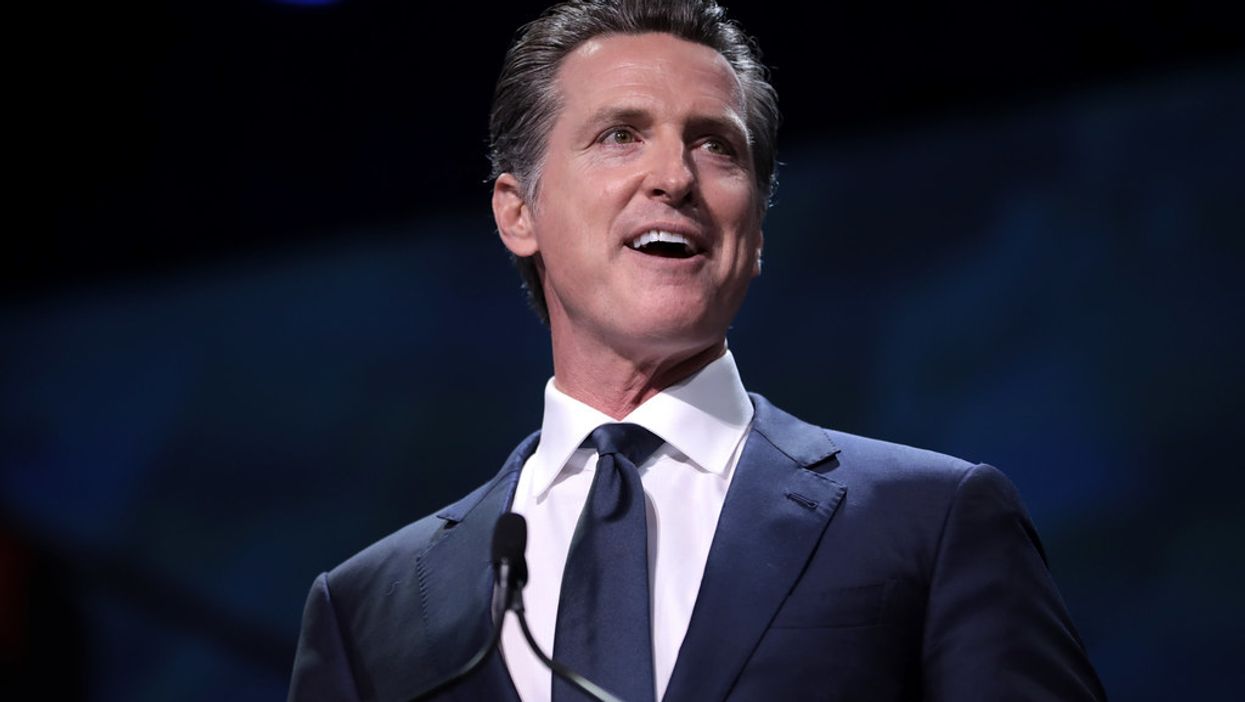Gov. Gavin Newsom of California wants more changes to make voting easier this fall in the nation's most populous state. And he's pushing his Democratic colleagues in the Legislature to turn his moves into law, expecting that would brush back Republican lawsuits seeking to keep the status quo in place.
The governor's latest executive order, announced Wednesday, tells all 58 counties to create at least one venue for in-person voting on Election Day and also permit voting on the three days before.
Last month he told those local election officials to send all 20.6 million registered voters a general election ballot as a way to make mail-in voting the dominant system and minimize the public's exposure to the coronavirus.
But his new order says disabled, non-English-speaking and homeless Californians, among others, need the option to go to a voting station. It also says counties need to create at least two places with drop boxes, set up a month ahead of time, for voters who don't want to rely on the Postal Service to deliver their ballots in time.
The easing of the rules, especially if they survive legal challenges, could help boost turnout significantly this fall in the place where 13 percent of the country's voters live — and minimize the long lines, populated by people complaining about undelivered mail-in ballots, that marred primaries this week in eight states and Washington, D.C.
[See how election officials in California — and every other state — are preparing for November.]
California is reliably blue overall, its 55 electoral votes a lock for former Vice President Joe Biden and Democrats sure to remain in control in Sacramento, but the GOP has a shot at picking up a handful of congressional seats.
President Trump has focused much of his rhetoric about easier voting rules fomenting fraud on recent results from California, but his claims are almost completely unsubstantiated.
His party has already gone to court to stop Newsom's send-everyone-a ballot move, saying that he's overstepped his authority, and similar legal claims against Wednesday's orders are likely. But those claims would presumably be moot if the Legislature clears measures doing what Newsom wants, and this week the state Senate advanced one such bill.
The cost to implement the latest guidelines will be substantial, easily exceeding California's share of the federal funding sent to all states so far for conducting smooth and safe elections during the Covid-19 outbreak. That means legislators will have to provide funding to carry out Newsom's plan in the annual state budget, which is supposed to be completed by June 15.
Some large counties, including Los Angeles and Orange, already allow several options for early voting and balloting by mail — which was how three of every five ballots were cast in the state two years ago. But many of the more rural counties operate a very traditional system, with almost everyone going to a local polling station on a single day.
Newsom's order pushes these counties to save money, and work to reduce long lines that threaten social distancing, by setting up countywide voting centers that open starting Oct. 31 — perhaps with county officials acting as poll workers.
"As the demonstrations across the country remind us, civic participation is critical to our democracy," he said. "If we are to address the racial inequities that exist in our institutions, policies and representation, we must ensure that all eligible Californians have an opportunity to safely cast their ballot."




















Trump & Hegseth gave Mark Kelly a huge 2028 gift